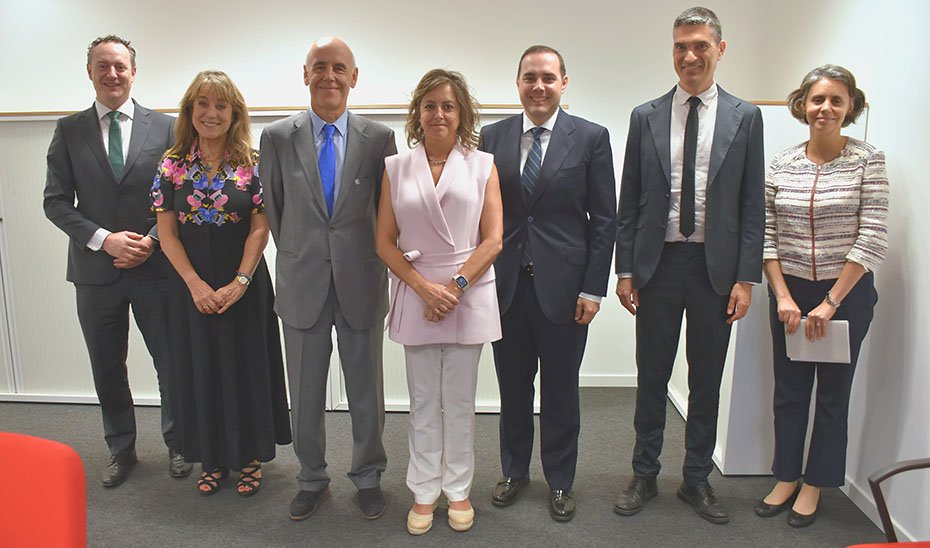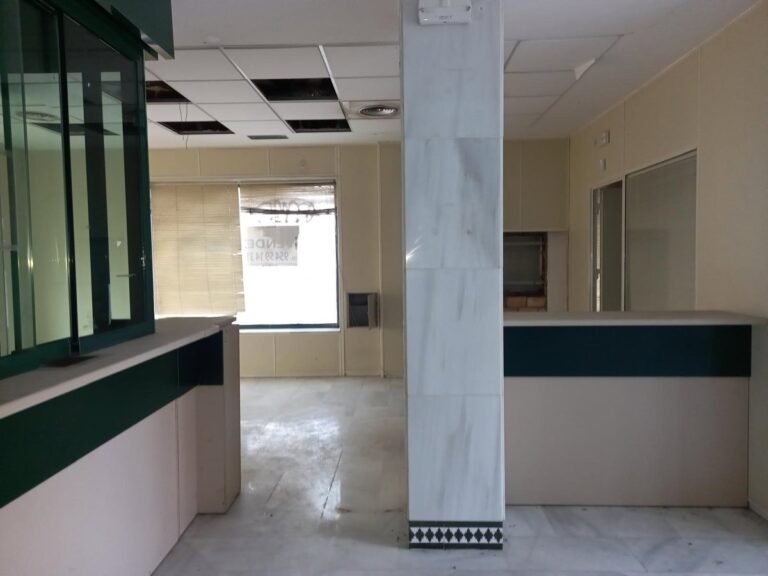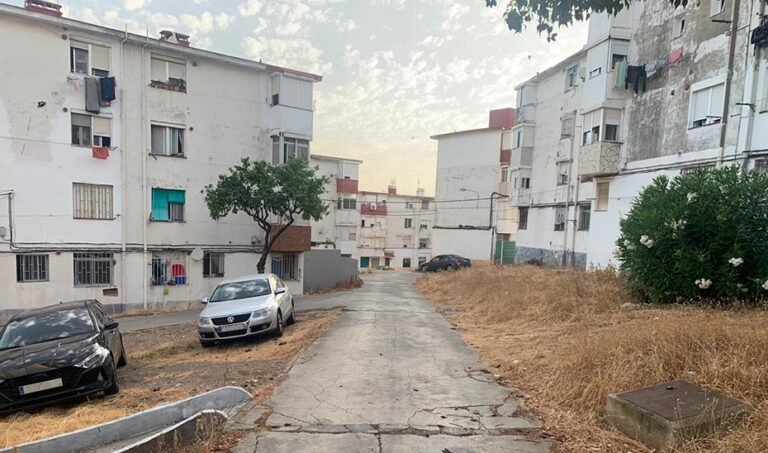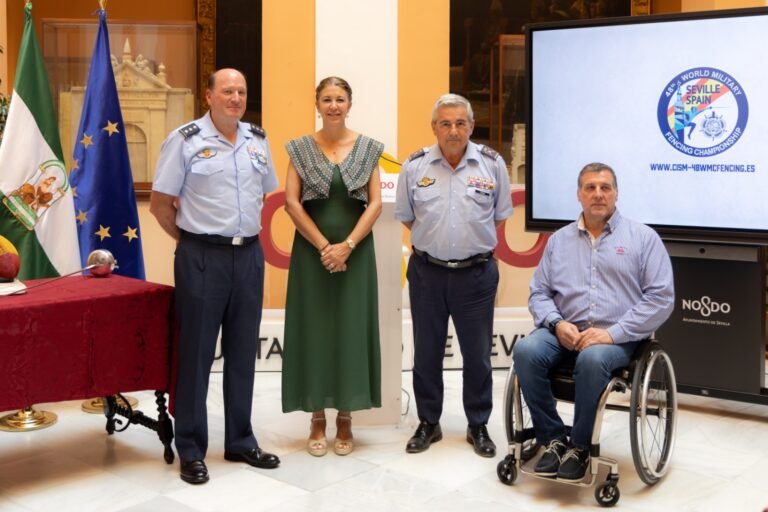
The Minister of Sustainability and Environment of the Andalusian Government, Catalina García, held a meeting in Brussels with the Director of Biodiversity of the Directorate-General for Environment of the European Commission, Humberto Delgado Rosa, as part of her institutional trip to European institutions. During the meeting, she conveyed the firm commitment of the Andalusian Government to active and sustainable forest management, especially in the current context of climate change, and emphasized that the future Montes Law, currently in process, will be a key tool to enhance the adaptation capacity of Andalusia’s forest ecosystems to climate action.
The Minister explained that this regulation «is born with a clear vocation for modernization, protection, and activation of the forest environment as a source of life, employment, and environmental balance in the territory.» As she indicated, its approval «will represent a turning point in the way in which Andalusia cares for, conserves, and values its mountains and forests.» This new regulation – the first to be promoted in over three decades – represents a necessary update of the Andalusian forest legal framework, adapted to the challenges of the 21st century.
«We want to build a useful, modern, and ambitious law that responds to the needs of rural areas and offers real solutions to climate change, desertification, and biodiversity loss,» said Catalina García. The Minister explained that the draft law includes a long-term strategic forest planning, reinforces the protection of public forest land, and promotes sustainable management based on the multifunctionality of the forest, its responsible use, and its value as a green job engine in rural areas.
Likewise, she emphasized that the new regulation includes incentives for private management and the promotion of forestry collaboration entities, as well as the creation of a Network of Exemplary Forests (MUESTRA Network) that will serve as a reference for good practices in conservation and sustainable use. «We aspire for Andalusia to consolidate itself as a pioneering territory in Mediterranean forest policy, where sustainability and prosperity advance together,» she added.
Catalina García pointed out that in recent years, the effects of climate change have left a very visible mark on forest areas, especially in provinces most exposed to aridity and water stress. «Prolonged drought, with seven consecutive years of water deficit, despite the recent rains in March, and high temperatures are causing a very worrying process of forest decline, with weakened masses suffering from loss of coverage, incomplete sprouting, pests, or tree mortality, especially in high and mid-altitude areas,» she explained.
Forest Management
In this regard, she stressed that «the Andalusian forest management model has focused on anticipating, planning intelligently, and integrating tools into its policies that increase the resilience of the Andalusian forest system to climate impacts.» Among these tools, she highlighted the promotion of sustainable forest use as a way to revitalize the economy of rural areas, reduce the risk of fires, and preserve biodiversity. «We want to give prominence to the forest as a renewable economic resource: as a generator of green jobs, as a carbon sink, as a barrier against erosion, and as a fabric of territorial cohesion,» she affirmed.
She also recalled that this use includes not only the production of certified wood or cork, but also compatibility with extensive livestock farming, which plays a fundamental role in fire prevention and population settlement in rural areas. «Herds are also allies of biodiversity: they maintain clearings, reduce vegetative fuel, and allow for multiple uses of the territory that make its maintenance viable,» she said.
During the meeting, Catalina García also informed about the Andalusian Biodiversity Strategy Horizon 2030, currently under development, which will set the roadmap for Andalusia in terms of conservation and sustainable use of biological diversity until the end of the decade. «We are facing a very complex environmental context, where biodiversity loss is advancing rapidly. That is why we have considered it a priority to update our framework strategy and align its objectives with new European, national, and regional approaches,» she stated.
The Minister emphasized that the new strategy will focus on the interdependence between nature and society, promoting planning that integrates the human factor in habitat management, fostering research, strengthening social participation, and promoting the shared responsibility of all stakeholders. «Biodiversity in Andalusia cannot be understood without people, without land use, without the balance between protection and sustainable development. That is why this process will involve extensive public consultation,» she emphasized.
During the meeting, the Minister also shared with Delgado Rosa one of the main climate innovation tools developed by the Andalusian Government in recent years: the Andalusian Catalog of Absorption Projects (CAPA). This catalog, a pioneer in Europe, identifies, registers, and verifies public and private projects that generate natural carbon sinks, such as reforestation, habitat improvements, or actions in wetlands, allowing both quantification of their impact and the promotion of emissions compensation mechanisms. «The CAPA allows progress towards climate neutrality without losing legal certainty and with transparency as an essential value,» she stated.
Additionally, the Minister presented the climate scenario viewers developed by the Ministry within the Andalusian Environmental Portal to the Director of Biodiversity. This is an open and dynamic tool, called Map-CLIMATE, which allows any citizen, company, researcher, or administration to consult temperature and precipitation projections until the end of the century at a municipal level, under different scenarios. «We have made available to everyone an interactive viewer that translates complex scientific data into useful information for decision-making, especially at the local level,» she stated.
Municipal Plans against Climate Change
In this line, she also wanted to highlight the work being done with Andalusian municipalities through the Municipal Plans against Climate Change, a requirement established in the 2018 Law that Andalusia has approached as an opportunity to generate local climate culture. «We are supporting our municipalities in this process so that they can develop measures adapted to their reality, promoting energy efficiency, sustainable mobility, or the adaptation of public spaces to extreme heat,» she stated.
In connection with the above, she mentioned that by 2025, it is expected that the 756 Andalusian municipalities with fewer than 50,000 inhabitants may have approved their respective Municipal Plans against Climate Change. «Municipalities are actively part of the climate response, and that is a very hopeful paradigm shift,» she added.
During the meeting, Catalina García reiterated that Andalusia wants to continue being a reference territory in the application of European environmental policies and in the implementation of innovative models that connect the climate challenge with social and economic sustainability. «Andalusia has shown that it is possible to combine conservation and development, and we want to continue moving in that direction with the support and collaboration of European institutions,» she asserted.
The Minister thanked Humberto Delgado Rosa for the sensitivity of the European Commission to the context of Mediterranean regions particularly affected by climate change, and reiterated the willingness of the Junta to continue sharing good practices, proposing solutions from the territory, and participating in European projects in the forest, climate, and biodiversity fields. «We are a land with great ecological diversity, but also with significant structural challenges. That is why our responses must be innovative, integrated, and designed from a local perspective,» she concluded.
Also present at the meeting, on behalf of the Andalusian Government, were the Deputy Minister of Sustainability and Environment, Sergio Arjona; the Government Delegate of the Junta de Andalucía in Brussels, Catalina de Miguel; and the Director-General of Forest Policy and Biodiversity, Juan Ramón Pérez Valenzuela, among other attendees.





